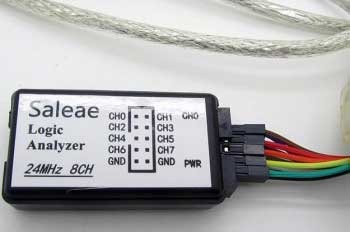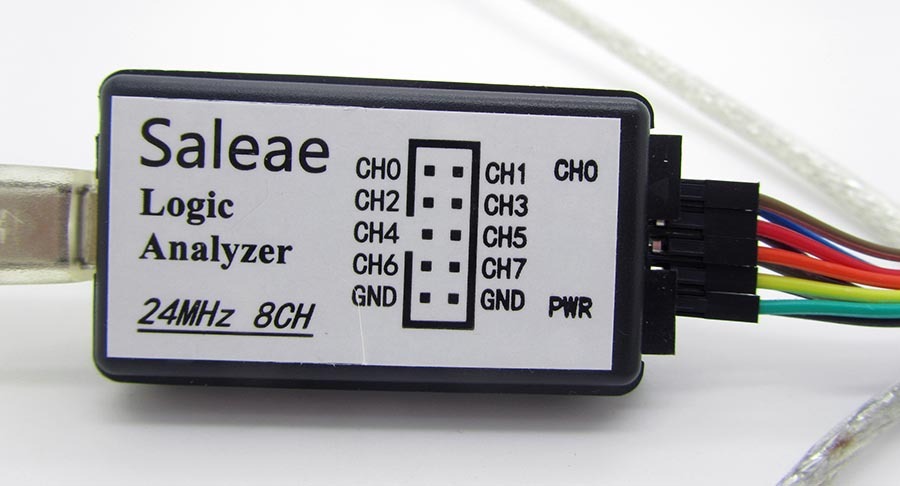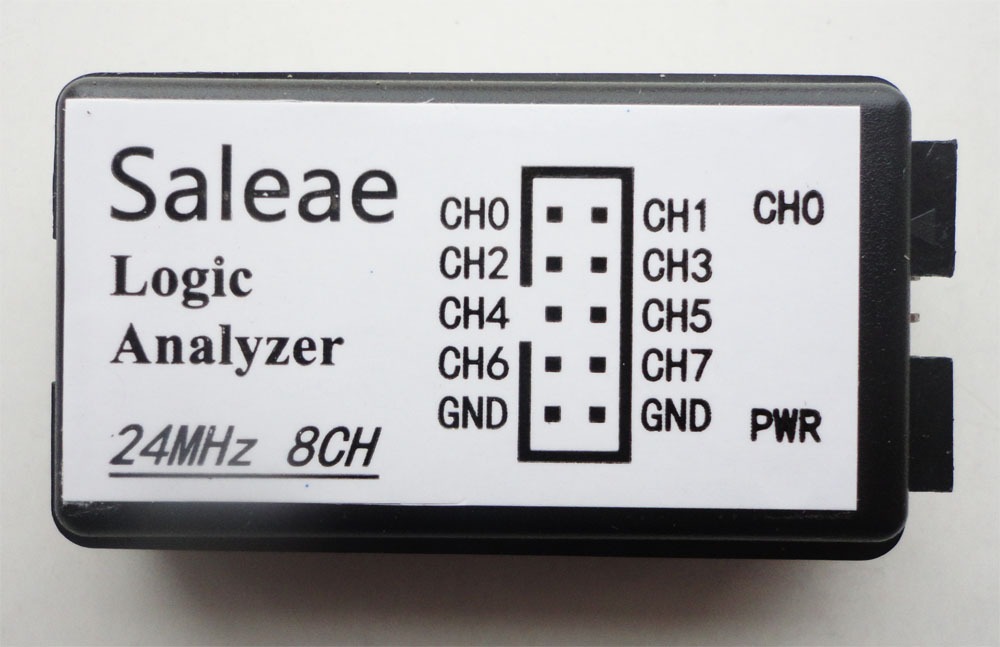Logic Analyser
Product Description
Logic analyzers are commonly used to analyze multiple digital signals from a system under test (SUT). Although many oscilloscopes are able to view the same data, logic analyzers make use of different technology allowing more channels at a higher bandwidth. These devices are particularly useful for monitoring common digital protocols such as I2C, SPI, CAN, PCM etc. and serve as an invaluable debugging tool.
The Saleae logic analyzer is able to monitor 8 independant channels at a maximum frequency of 24 MHz making it perfect for monitoring and debugging a range of systems. It plugs staright into a computer via a USB2.0 connector where the signals can be monitored, decoded and analyzed.
The package includes the analyzer itself, a USB cable and a set of DuPont cables for quick and easy testing.
Specifications:
The Saleae logic analyzer is able to sample at various sample rates, as listed below:
24MHz, 16MHz, 12MHz, 8MHz, 4MHz, 2MHz, 1MHz, 500KHz, 250KHz, 200KHz, 100KHz, 50KHz, 25KHz.
The device offers ESD protection and over-voltage protection to reduce the risk of accidental damage. It has an input impedance of 1 Mohm @ 10pF (typically) and its regular operating conditions are as follows:
| Input voltage range | -0.5V to 5.25V |
| Input Low Voltage | -0.5V to 0.8V |
| Input High Voltage | 2.0V to 5.25V |
From the table above it is obvious that all 2, 2.5, 3.3 and 5V systems are compatible. However, 1.8V systems do work they are not as reliable.
Software
The logic analyzer is commonly used with Saleae's "Logic" software, however there are alternatives available too. Logic provides a really neat and intuitive interface between a user and SUT. It takes care of all the triggering and admin, allowing the user to focus on the task at hand.
Logic is able to decode common digital protocols automatically and on-the-fly so the user won't be left staring at a complex waveform aimlessly. The protocols that are currently supported are as follows: I2C, Async Serial, SPI, 1-Wire, CAN, I2S, PCM, UNI/O, Manchester, and a few others.
Logic supports Windows (XP, Vista and 7), Mac OS (10.4 or higher) and Linux (Ubuntu, Fedora or openSUSE). Other systems/distributions may work, however they are not officially supported.
Software, as of March 2014, is available below. To check for the latest version please visit Saleae's website.


